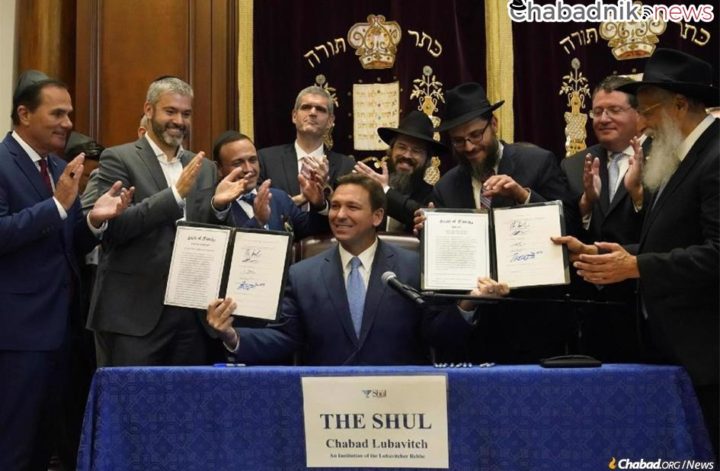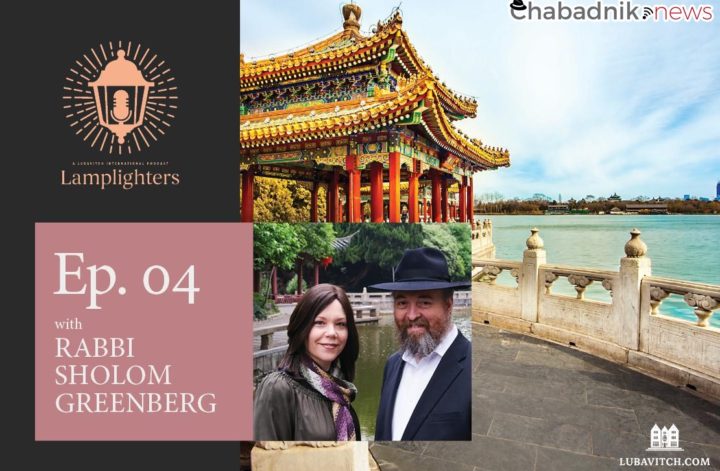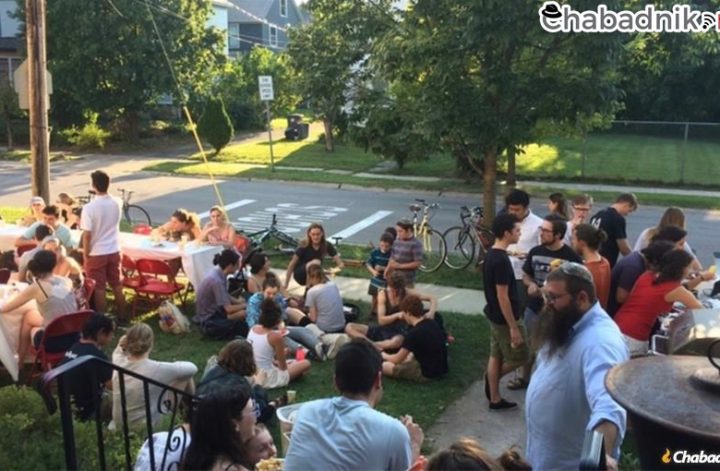Parents urged to guide their children on the time of brief reflection
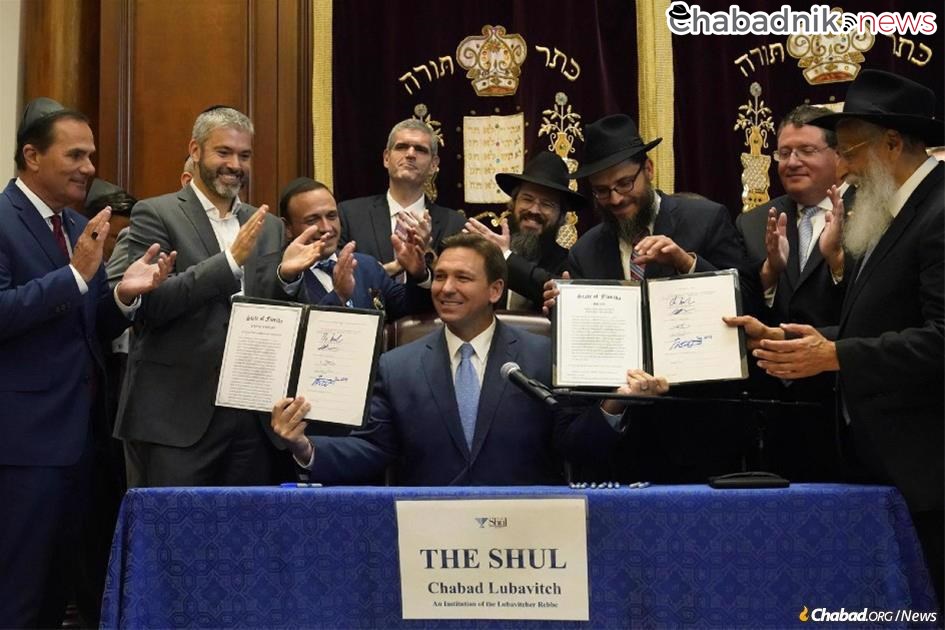
A Florida law that requires a one- to two-minute Moment of Silence at the start of each day in public schools was signed into law on Monday by Gov. Ron DeSantis.
The law, which was passed by the Florida Legislature in April, prohibits teachers from making suggestions to students about what to think about or do during the Moment of Silence, and instead encourages parents or guardians to discuss with their children how the student can best utilize the moment of silence.
“It’s something that’s important to be able to provide each student the ability, every day, to be able to reflect and to be able to pray as they see fit,” DeSantis said at the signing ceremony.
The new law, which takes effect on July 1, will be in place by the start of the next school year. Until now Florida law permitted, but did not require, that schools set aside up to two minutes each day or each week to give students the opportunity for silent prayer or meditation.
During hearings in both Florida Houses earlier this year, proponents asserted that a Moment of Silence—currently mandated in 15 states and on the books in dozens more—can be effective in giving children an opportunity for introspection and contemplation in a chaotic world.
The Moment of Silence bill was sponsored in the House by Rep. Randy Fine (R-Palm Bay) and in the Senate by state Sen. Dennis Baxley (R-Ocala), and passed both Houses with overwhelming bipartisan support.
“Who knows what may be changed simply because the children of Florida will have the opportunity of quiet reflection?” Baxley said at the signing, which took place at The Shul of Bal Harbour, Fla. and was hosted by Rabbi Shalom B. Lipskar, the synagogue and community center’s rabbi and executive director.
The wheels were first set in motion after Baxley met in 2019 with Rabbi Shneur Zalman Oirechman—co-director with his wife, Chanie, of Chabad-Lubavitch of the Panhandle—at the Capitol building in Tallahassee. After meeting the rabbi, Baxley discussed the proposal with Rabbi Yossi Hecht, co-director of Chabad-Lubavitch of Ocala, which Baxley represents, and resolved to sponsor a bill enshrining a Moment of Silence into law.
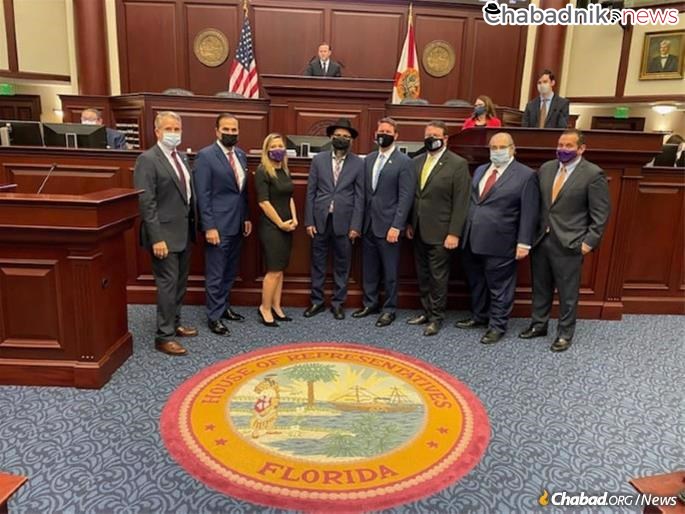
Fine sees the bill as a non-denominational effort regardless of faith or background: “Every child will benefit from this time to be centered before the beginning of the day.”
Oirechman’s work on the bill was directly inspired by the Rebbe—Rabbi Menachem M. Schneerson, of righteous memory—who was a longtime champion of moral education in schools, both public and private, noting that while schools must obviously teach basic general education, they have an imperative to imbue moral values in their students as well.
Beginning in 1983, the Rebbe spoke increasingly about the concept of a Moment of Silence in America’s schools in the face of rising crime rates and societal dysfunction across the nation.
“The Rebbe passionately encouraged a Moment of Silence in all public schools,” said Oirechman. “He spoke of how it will put society on a better path by giving children the awareness of something greater than themselves.”
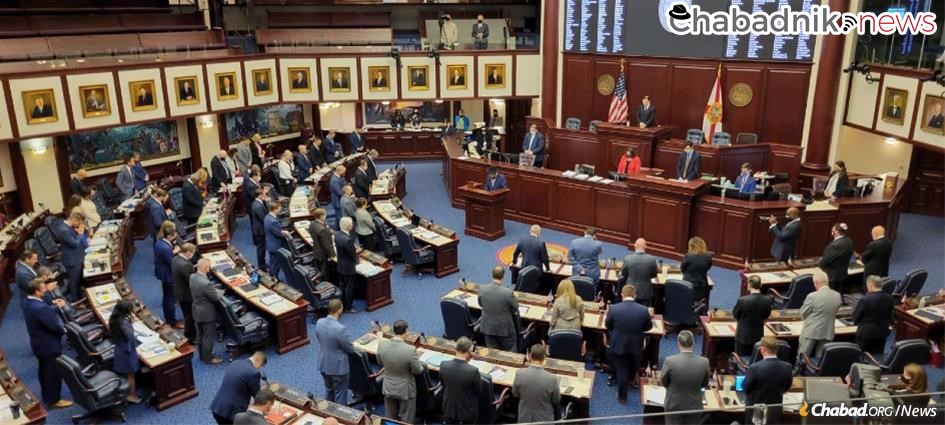
Better Behavior, Academic Achievement and Social Skills
Highlighting the universal nature of the proposal, the Rebbe insisted that parents be the ones who instruct their children regarding what to reflect on during a Moment of Silence—and not the school or the teachers—providing parents with a framework for meaningful dialogue with their children. While parents often pack a sandwich for their child’s lunch, he explained, they must also send them off with “spiritual food.”
“Knowing that school time is devoted to education,” the Rebbe explained in a 1986 address, “the child realizes that the moment of silence must be dedicated to the most important things in his life: his outlook on life, and his belief in the Creator and Ruler of the world—as per the instructions which his parents will give him.”
Indeed, research cited by the Centers for Disease Control and Prevention (CDC) shows that increased parent engagement in schools is linked with better student behavior, higher academic achievement and enhanced social skills.
The Florida Moment of Silence bill reads, in part: “ … in today’s hectic society too few persons are able to experience even a moment of quiet reflection before plunging headlong into the activities of daily life. Young persons are particularly affected by the absence of an opportunity for a moment of quiet reflection. The Legislature finds that our youth, and society as a whole, would be well served if students in the public schools were afforded a moment of silence at the beginning of each school day.”
A moment alone with one’s thoughts disconnected from technology is perhaps more important than ever; a 2013 study commissioned by Nokia showed that on average, people check their phones every six minutes—or 150 times a day.
Sen. Victor Torres (D-Kissimmee), a supporter of the bill, recalled observing a Moment of Silence as a child in New York. “I feel that it gives the teacher and the students a chance to reflect, and whichever religion you believe in, that’s your right,” he said.

